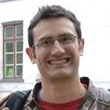Foundations of Quantum Mechanics: Reversibility and Time Arrow in Quantum Theory
A special issue of Entropy (ISSN 1099-4300). This special issue belongs to the section "Quantum Information".
Deadline for manuscript submissions: closed (30 November 2023) | Viewed by 9483
Special Issue Editors
Interests: foundations of quantum mechanics; quantum information theory; quantum probabilities; quantum logic
Special Issues, Collections and Topics in MDPI journals
2. Università degli Studi di Cagliari, I-09123 Cagliari, Italy
Interests: quantum information; quantum correlations; uncertainty relations; majorization theory and its applications; entropies
Special Issues, Collections and Topics in MDPI journals
Interests: quantum mechanics; quantum information; quantum dynamics; ultracold atoms
Special Issue Information
Dear Colleagues,
Since its origins, quantum theory has posed deep questions with regard to the fundamental problems of physics. During the last few decades, the advent of quantum information theory and the possibility of developing quantum computers has given rise to renewed interest in foundational issues. Research into the foundations of quantum mechanics has been particularly influenced by the development of novel laboratory techniques, allowing for experimental verification of the most debated aspects of quantum formalism.
The X Conference on Quantum Foundations, to be held online during November 2021, aims to gather experts in the field with the purpose of promoting academic debate on the foundational problems of quantum theory. For ten years, this conference has served as a forum for heated debate, bringing together researchers from various parts of the world. This Special Issue aims to contribute to the development of that debate. Researchers interested in quantum foundations are welcome to present their original and recent developments, as well as review papers, on the topics listed below. All contributions will be peer-reviewed.
Topics of the Special Issue:
- Quantum Information Science
- Quantum Statistical Mechanics
- Information Measures in Quantum Theory
- Quantum Correlations
- Uncertainty relations
- Geometrical Methods Applied to Quantum Theory
- Violation of Bell Inequalities
- Quantum Probabilities
- Decoherence and Classical Limit
- Quantum Computing
- Interpretations of Quantum Mechanics
- Quantum Contextuality
- Quantum Indistinguishability
- Quantum Logic
- Algebraic Methods in Quantum Theory
- Hidden Variable Theories
- Non-linear Methods Applied to Quantum Theory
- Foundations of Relativistic Quantum Mechanics
Dr. Federico Holik
Dr. Gustavo Martín Bosyk
Dr. Ana Majtey
Guest Editors
Manuscript Submission Information
Manuscripts should be submitted online at www.mdpi.com by registering and logging in to this website. Once you are registered, click here to go to the submission form. Manuscripts can be submitted until the deadline. All submissions that pass pre-check are peer-reviewed. Accepted papers will be published continuously in the journal (as soon as accepted) and will be listed together on the special issue website. Research articles, review articles as well as short communications are invited. For planned papers, a title and short abstract (about 100 words) can be sent to the Editorial Office for announcement on this website.
Submitted manuscripts should not have been published previously, nor be under consideration for publication elsewhere (except conference proceedings papers). All manuscripts are thoroughly refereed through a single-blind peer-review process. A guide for authors and other relevant information for submission of manuscripts is available on the Instructions for Authors page. Entropy is an international peer-reviewed open access monthly journal published by MDPI.
Please visit the Instructions for Authors page before submitting a manuscript. The Article Processing Charge (APC) for publication in this open access journal is 2600 CHF (Swiss Francs). Submitted papers should be well formatted and use good English. Authors may use MDPI's English editing service prior to publication or during author revisions.
Keywords
- quantum correlations
- decoherence and classical limit
- uncertainty relations
- quantum probabilities
- quantum computing
- interpretations of quantum mechanics
- quantum contextuality
- quantum indistinguishability
- quantum logic
- hidden variable theories








